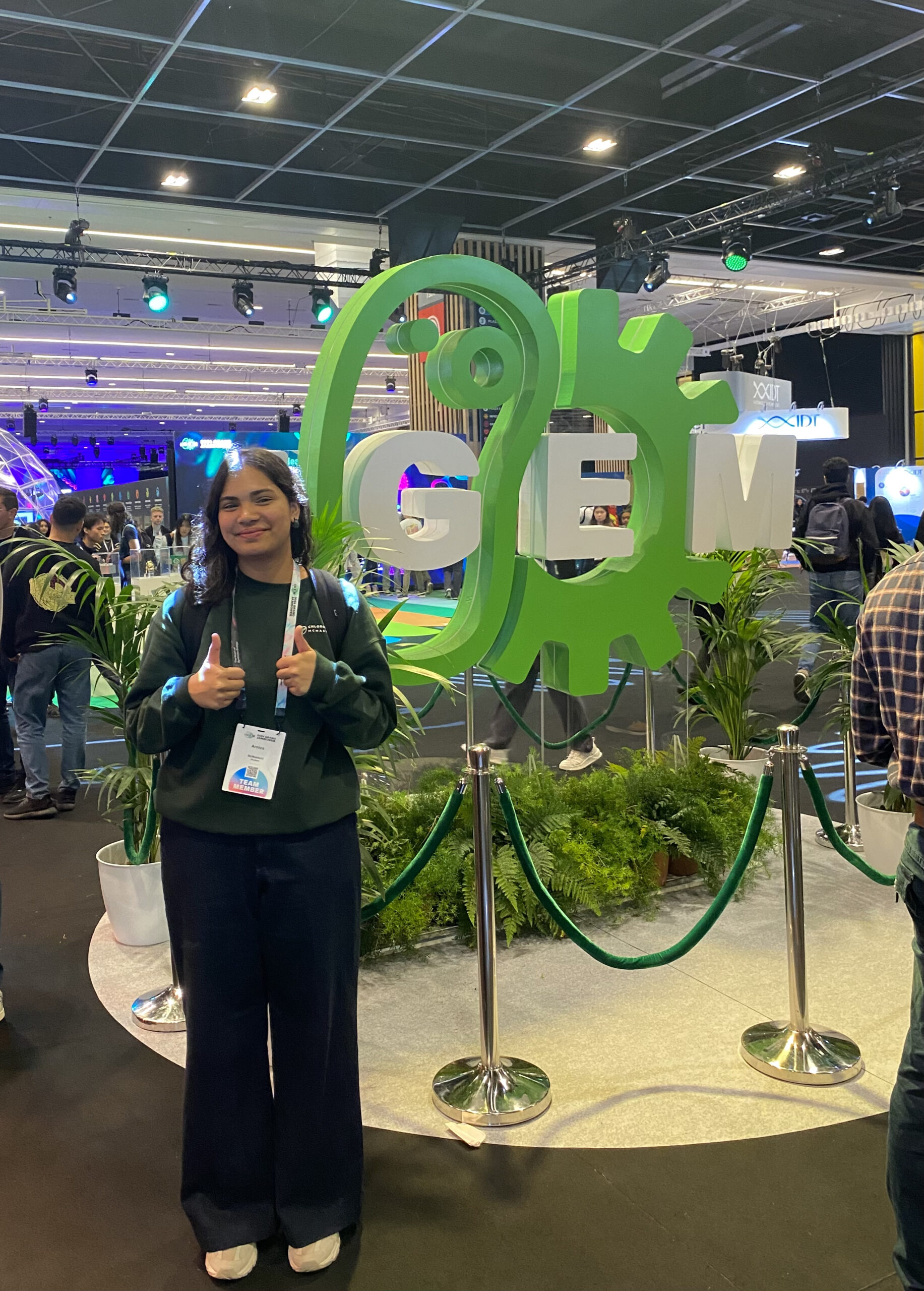Award-winning Let’s Talk Science volunteer inspires future scientists
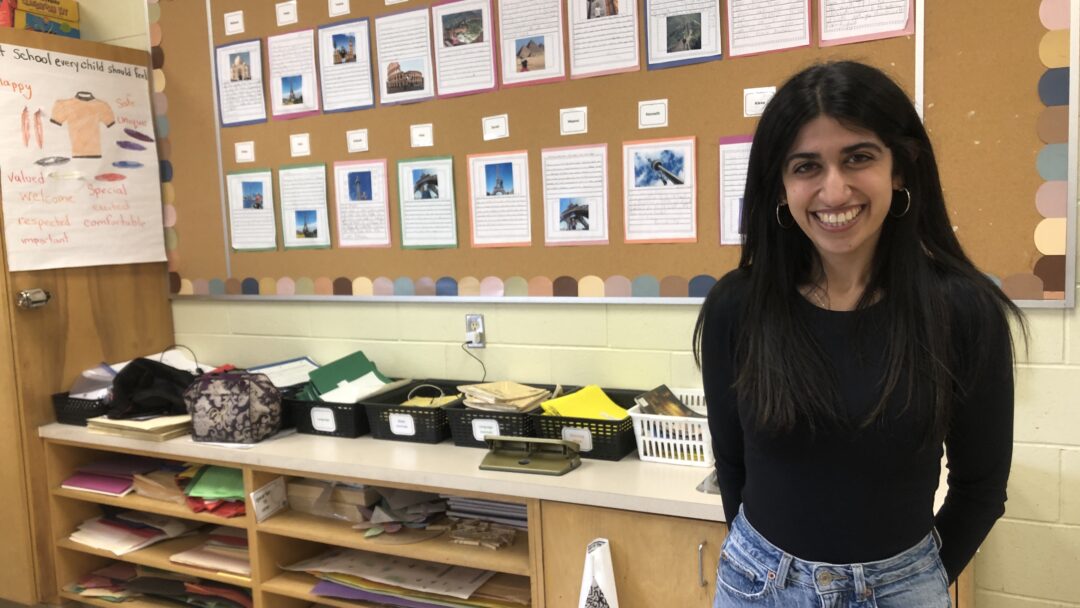
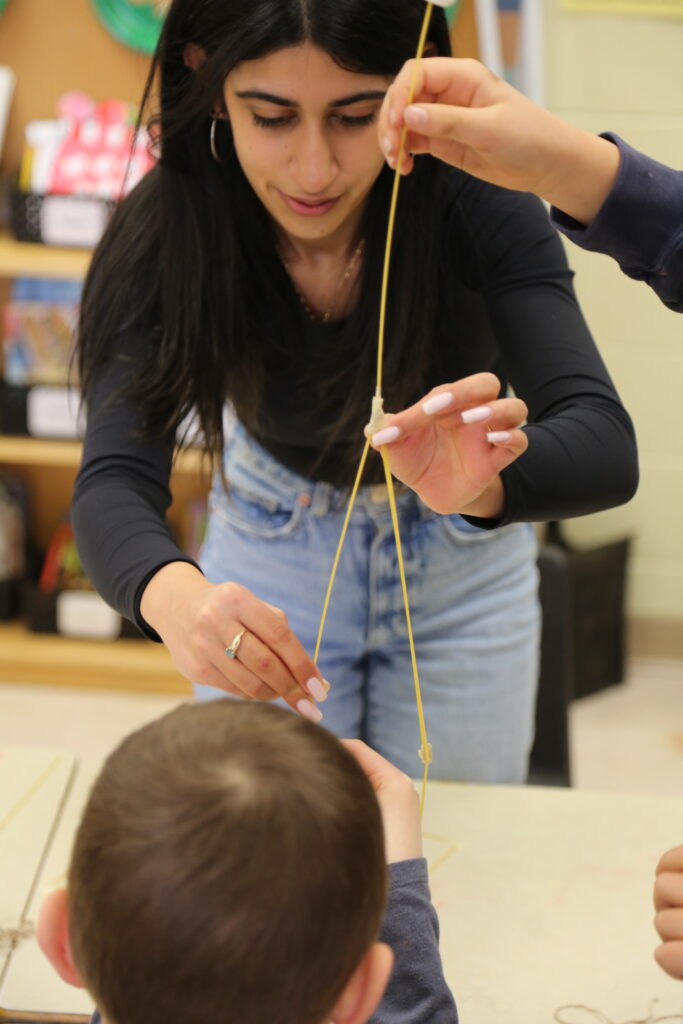 Ishika Kumar saved the most important lesson for last during her visit to a Grade 3 class at Cootes Paradise Elementary School just a few bus stops away from McMaster.
Ishika Kumar saved the most important lesson for last during her visit to a Grade 3 class at Cootes Paradise Elementary School just a few bus stops away from McMaster.
Ishika’s a volunteer with Let’s Talk Science. It’s an award-winning, national charity that’s delivered no-cost STEM programs for 30 years to kids, youth and educators. McMaster’s chapter is among the oldest and largest, with just over 100 students from Science, Engineering and Health Sciences. In 2022-23, the Mac crew ran 154 activities at schools and community events for over 8,200 children and youth.
The program also has some freshly minted grads like Ishika, who graduated last spring with an honours degree in Life Sciences and a minor in Psychology, Neuroscience and Behavior. She told the class that neuroscience doesn’t mean she can read minds. Ishika hopes to start graduate school at McMaster this fall. In the meantime, she’s become an avid Let’s Talk Science team member. She’s already earned awards for volunteer of the month and semester.
Her favourite experiment has kids building and then racing paper helicopters to learn about aerodynamics. She doesn’t have a favourite school or grade – she says every visit’s been amazing. Ishika’s the big sister at home and it shows when she’s in a room full of antsy junior scientists.
For this Let’s Talk Science visit with fellow Mac students Jenny Doan and Melanie Warnakula, Ishika mixed a physics lesson with hands-on fun. Four teams of students put on their science and engineering hats and had 30 minutes to build a tower out of spaghetti sticks, string, tape and a marshmallow.
When time ran out, Ishika measured the height of the towers and checked to if she could blow the pasta towers over with a fan. Team four had run into trouble with their tower and Ishika rallied the class to help out.
This is when Ishika delivered her most important lesson. “The first time you do an experiment doesn’t mean it’s going to be the best time. You might have to do it a thousand times before it’s the best.” Every scientist knows all about trial and error, said Ishika. If at first you don’t succeed, scientists try and try again and ask others to pitch in. She pointed out that every team had come up with a unique idea. What if they combined those ideas the next time to build an even taller and sturdier tower?
The kids also had a ton of questions for Ishika before, during and after the experiment. Why does the Leaning Tower of Pisa lean and why hasn’t it fallen over? Is McMaster making the computer implants that go right into people’s brains? Are you a PhD student? Did you know that crash test dummies aren’t actually dumb? Did you know the Earth spins around the Sun and not the other way around? “Can I eat the marshmallow?” was asked more than once and kept getting a hard no from the teacher. Kids who wanted to hold onto their pieces of string got the green light.
The visit wrapped up just as cookie club was announced over the PA system. The kids made a beeline for the door but not before thanking Ishika, Jenny and Melanie for the science lesson. And checking one last time if they could eat the marshmallows.
Engagement excellence, Students
Related News
News Listing
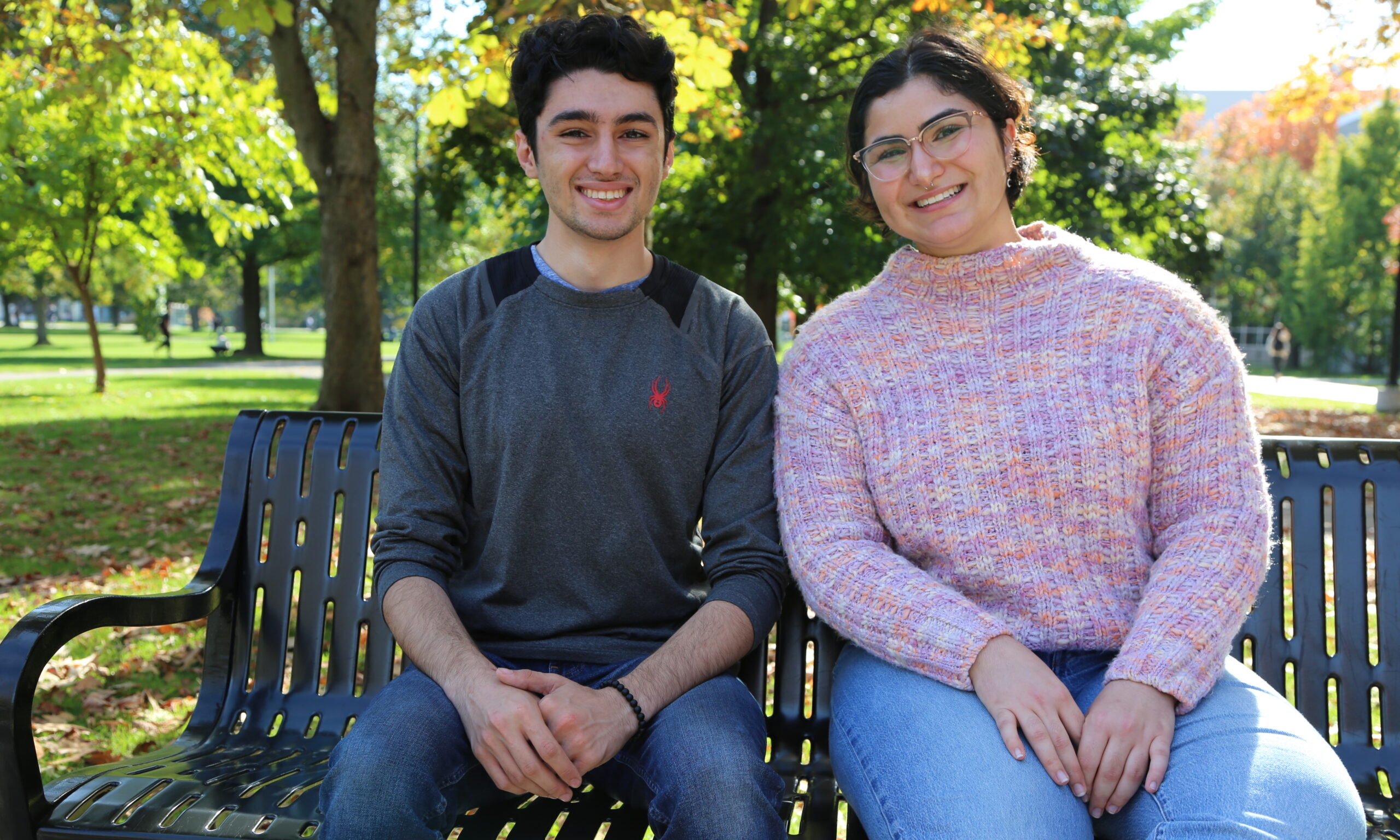
October 25, 2024
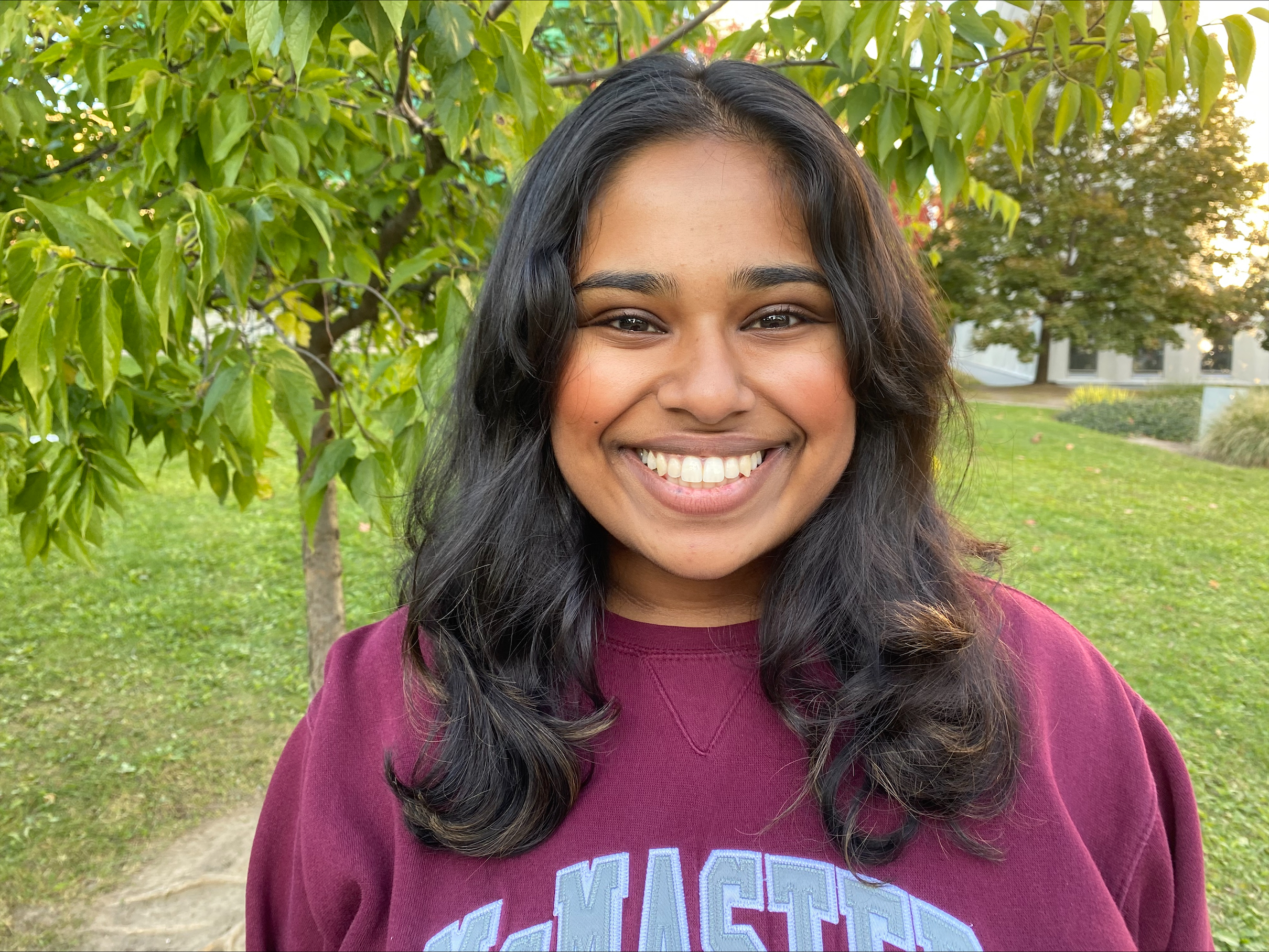
From NOVA to Brain Bee to PNB – lifelong love of neuroscience led to McMaster
Alumni, Outreach, Students
October 18, 2024

